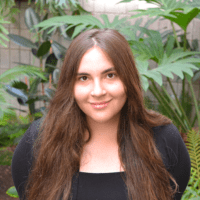
“Studying the Diversity and Biosynthesis of Resin Glycosides in Morning Glories”
Project Summary
It is estimated that over a million different metabolites exist across the plant kingdom. Members of the Convolvulaceae (morning glory) family produce secondary metabolites called resin glycosides, which have potential applications in improving human health and agricultural sustainability. Preliminary metabolomic analysis of thirty-four morning glory species revealed that resin glycoside composition varies significantly across different tissues and species. In order to draw conclusions on the evolutionary history of resin glycosides and their diversity, as well as confirm the identity of the tested species, we used a DNA-barcoding method. Total DNA was extracted, matK and trnLF barcoding loci were amplified by PCR, and the resulting products were sequenced. A phylogenetic tree was generated with the sequences using maximum likelihood methods, and compared with sequences obtained from NCBI. This analysis confirmed that the sampled plants belonged to the correct genera. To establish a method for testing candidate genes important in the biosynthesis of resin glycosides in morning glories, virus-induced gene silencing (VIGS) was tested in Ipomoea tricolor. We successfully established a protocol that was able to downregulate the phytoene desaturase (pds) gene leading to the characteristic photobleaching phenotype. In future experiments, candidate genes for different steps of the resin glycoside biosynthesis can be tested using this method.
My Experience:
Working on this BTI project has provided me with the opportunity to develop new skills and has broadened my view of what my options are for graduate school. As a chemistry major, I did not have a substantial background in biology and I was a little anxious about working on biology based research. From the beginning of this internship, I felt that my mentor, Dr. Lars Kruse, had confidence in me. With his support and encouragement, I greatly expanded my knowledge and understanding of biological systems and had the opportunity to learn various new lab techniques. Working in the Moghe lab has given me the confidence to apply to biology based graduate school programs and having the opportunity to network with stellar plant researchers was invaluable.
